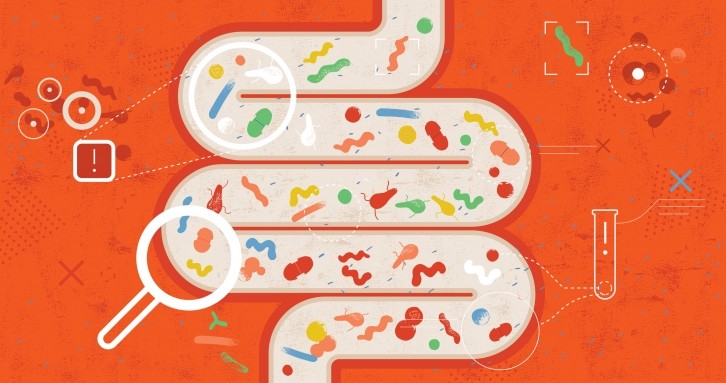Biotic personalisation for the microbiome: is it worth it?

This was the key take away from a panel discussion on ‘Replenishing the microbiome: advancing personalised nutrition and probiotics’ at the Future Food Tech event in London last week (Sept 28-29).
The panel also warned against premature commercialisation of biotics to retain consumer trust and asserted that large datasets and greater regulatory flexibility are needed to progress the research.
Premature products
Caitlin Hall, head of clinical research for the prebiotic fibre blend powder brand MYOTA, provided insights from her six years of research into the gut-brain axis and said whilst there is an influence of the microbiome on the brain, some brands have been premature in jumping to commercialisation.
“Consumers, the scientific community, and the industry are also catching on to this, and it’s becoming a key priority for everyone involved. Because of this, there has been quick, or even premature, commercialisation of the gut-brain axis,” she added.
She said these companies claim that their products are ‘backed by science’, yet the evidence is largely based on external preclinical studies with low reliability and control.
“This area has huge potential to grow, and within the next five or ten years it will be massive. But we have to be careful in how we approach it and not commercialize too quickly or undermine our consumer's trust in the category because of these dodgy brain-care products that are emerging,” she warned.
George Hadjigeorgiou, co-founder of the microbiome research company ZOE, agreed: “We have to remind ourselves that the opportunities are very exciting but it’s still very early. There are still a number of unanswered questions.
“But as we move towards prevention over treatment, the microbiome can be a new way to measure health and a new way to understanding your journey towards diseases before they arise. This allows us to shift the power from the medical systems to the consumers through their understanding of what is happening in the body and be in control of that,” he explained.
Yet, Richard Day, VP of medical affairs and clinical development at ADM, emphasised that some companies are further ahead in progressing the research than others.
“For example, at ADM we are currently running 60 randomised controlled trials in this area. We have reproducibility across our results. With the gut-brain axis, we are now running our third trial using the same intervention, and in the first two trials we demonstrated successful outcomes in the gut-brain axis,” he pointed out.
Hadjigeorgiou noted that because the science is in its infancy our understanding of what a healthy microbiome looks like is always evolving and this has made it difficult to know what bacterial species to focus on. He asserted that some species that were previously considered ‘main players’ in the microbiome are now seen as the ‘supporting actors’, as they aren’t as important as once thought.
He added that large datasets and AI are important to speed up this research and understand what a ‘healthy microbiome’ is.
Is personalisation worth it?
With regards to whether companies should be personalising biotics, Hall commented: “We have the ability and tools to personalise a whole range of things nutrition-wise. Does that mean that we should be personalising?
“At Myota, we have the ability to personalise a developed prebiotic fibre to the person’s gut microbiome, enabling for targeted production of short chain fatty acids.
“However, to create a hyper-personalised prebiotic supplement for that individual requires custom manufacturing and a diagnostic microbiome test kit. This then means this is unavailable to around 90% of our customers, so the personalisation becomes unscalable, cost-ineffective, and inaccessible to the people we want to reach,” she explained.
She suggested that such ‘hyper-personalisation’ may be suitable for athletes or those with complex conditions yet may be currently too challenging for the supplement space. She said that instead Myota provides fibres which the evidence suggests are fermentable in the microbiome by the majority.
Race for regulation
Hall noted the absence of a regulatory framework in which companies can submit a personalisation health claim, which she said makes it very difficult to communicate the benefits to the consumer.
Day agreed regulatory barriers are a challenge in microbiome research, explaining: “It occupies a space between pharma and food. What we’re often doing is investigating these products defined as foods using RCTs which are the gold-standard for the pharmaceutical industry.
“In doing so we’re creating some conflict with the regulator. In the UK, they can insist that clinical end points are not part of the study design for non-drug products. That’s fine, but what are we missing out on?” he added.
He highlighted that to bring effective, evidence-based products to market, there needs to be a regulator that is flexible to allow companies to appropriately investigate the health effects.
“At the moment we’re in a catch-up phase, where the regulator is still trying to catch up with the science,” he said.












